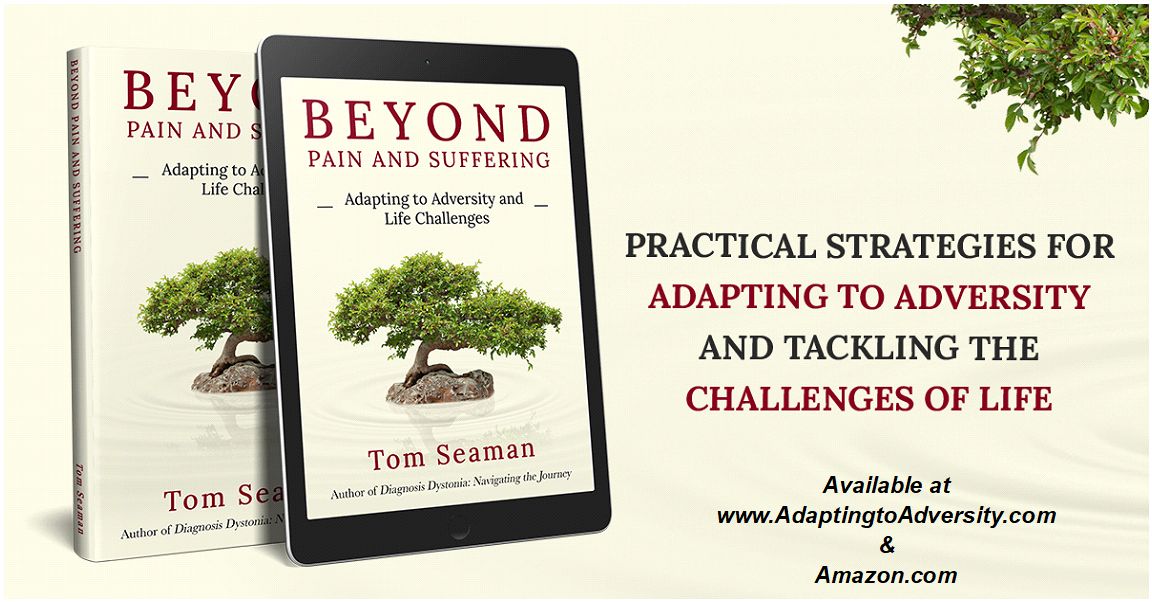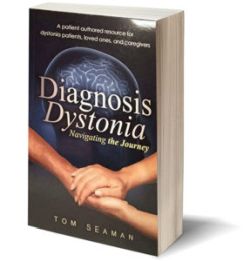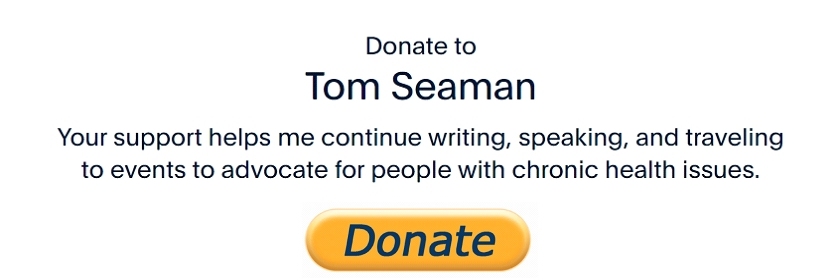Thoughts about suffering to help break through pain and misery
Most things in life don’t always go as expected. None of us ever truly prepares for a hardship that throws our life off course. Even in the case of a loved one who is sick and their death is imminent, it is still trauma to the system in its finality. Hardships rarely happen by choice. Most happen by chance out of our control. This is what happened to me in 2001 when I developed a severe case of dystonia, a neurological movement disorder.

Over the many years living with dystonia, I struggled a lot… and I mean a lot! But I also learned a lot. I used to fight against it constantly, and that tore me down. I had to find a better way.
For me, it is not so much about accepting hardship or resigning myself to it. Rather, it is a matter of not resisting and agreeing to work with it. To decide to make the most of it. To see hardship as an opportunity, not an obstacle. This churns down the adrenaline that reduces the hypervigilance that worsens symptoms. It also allows me to see options, and this remains my key to achieving and maintaining good health and joy in my life despite living nearly 3 decades with dystonia and pain, among other health issues I don’t discuss very often because they are so hard to explain.

Happiness or joy is not the absence of problems, but the ability to deal with them. If you are struggling with something, it doesn’t mean you’re failing. Almost every great success requires some kind of worthy struggle to get there. Be grateful when tough things happen so you can use the experience for personal growth and/or teaching others, be it your children, family, or friends, sometimes just by modeling strong, positive, virtuous behaviors.
Tough things in life prepare us for greater things. They also help us much better appreciate all that we may take for granted in our lives. We gain greater perspective when the chips are down. When life is easy, we rarely learn or grow. We are not put in a position to adapt, so we can lose perspective about what is most important and what to appreciate about life.
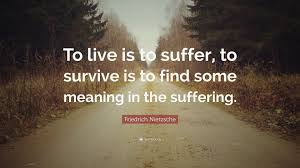
Most suffering comes from expectation. Most of us have a blueprint for how life should be and when it isn’t how we planned, it can cause sadness and even depression. We must understand that things happen that we will not always understand, but maybe we’re not supposed to understand everything. Maybe we’re supposed to let go, accept it, trust and have faith that everything will work out (which it almost always does), and let it happen without resistance. Resistance to any adverse circumstance increases its power over us.
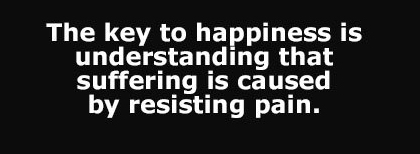
Suffering also comes from wanting the world or people or things to be different than they are. It’s okay to want things, but to need something different than it is or can be creates pain and suffering. Instead, love people and things for who and what they are. Not for who and what you want them to be. Learn to be okay with how things are, because they can’t be any other way. Why is that? Because if they were meant to be then they would be.

We often learn the hard way that our world is ruled by external factors. We don’t always get what we feel is rightfully ours, even if we’ve earned it. Not everything is as clean and straightforward as we plan for in our minds. Psychologically, we must accept this fact. It is far better to expect ups and downs rather than be blindsided or caught off guard. We are always prepared when things go right. It is when things go wrong that we are usually not ready, and we scramble to try to find a solution with hurried hypervigilance that often creates more problems.
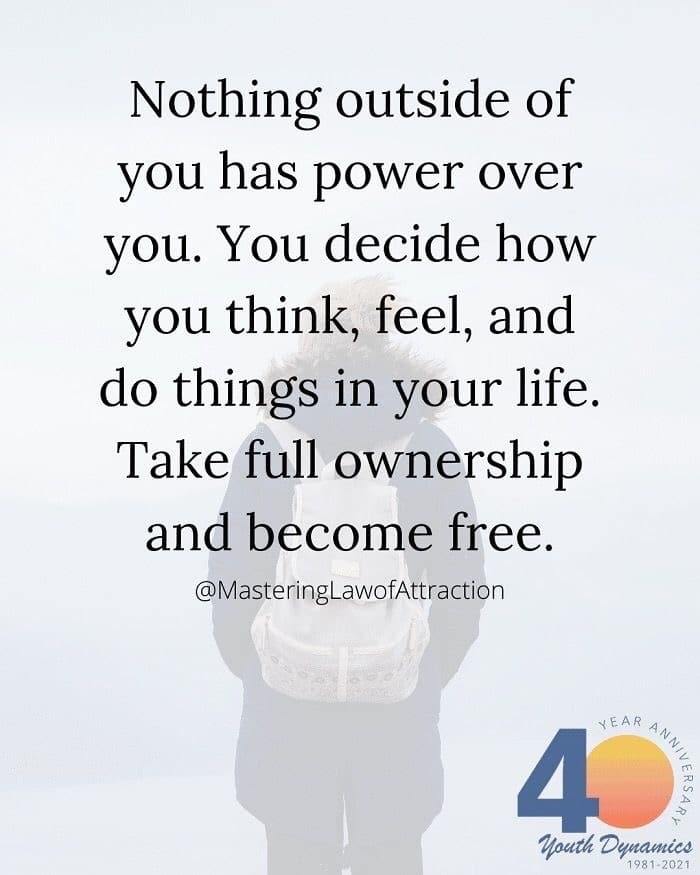
Life can unexpectedly bounce us around like a pinball machine. There is no way around this. Accepting this reality is the first step. If we resist, we do not adapt. When we flow with the turbulence of life, we can find peace and stillness. In this peace and stillness, we give ourselves a break from the blaring noise of the world around us, which gives us space to do some critical thinking. If we are filled with anxiety, stress, anger, or distract ourselves to avoid suffering, it is very hard to develop the insights required to solve difficult problems.

We may not be able to control all of the things that happen in life or what people say and do to us and/or around us, but we can decide not to be reduced by them. There is an incredible amount of liberation that comes with detaching from the things over which we have little to no control.
Emotionally, and even physically, we heal by focusing on what we can control and by reframing our self-defeating thoughts. We also grow when we look for lessons and use them to prepare for the future. As Nassim Taleb said in his book, Antifragile, “we become better because of what we went through; better than if we had resisted and never been broken in the first place.”

If we resist the natural flow of life by trying to control that which we can’t control, we suffer greatly. In other words, whatever we resist in life that is out of our control will begin to control our emotional health. Our stubbornness to want things a certain way, especially when things don’t go our way, dramatically increases our level of stress. Like water, we need to take the path of least resistance and practice learning to flow with life no matter what is happening.
Allow your breath to assist you in finding peace. Close your eyes, breathe in, and feel it; then breathe out and release your pain and stress and struggles. Repeat the process again and again until you feel more connected to yourself. Rather than resist your feelings, accept the moment as it is and yourself as you are. The short-term pain of focusing on your feelings will be better than the long-term stress and damage of avoidance and distraction.

What we resist persists, so accepting our current situation is essential for forward progress. Everything we fight weakens us and everything we embrace strengthens us. Please really think about this statement, as it may sound counterintuitive. If it does, in my opinion it is because we have been conditioned by poor habits of thinking that result in poor coping mechanisms and a struggle to process and ultimately detach from painful situations. My book, Beyond Pain and Suffering: Adapting to Adversity and Life Challenges, teaches how to better process adversity.
We must accept that life has obstacles, roadblocks, negative emotions, and circumstances that will derail our plans. Knowing this can help remove burdens and worry, helping us better flow with life rather than resisting it. We must realize that life is not pure sailing, but an adventure full of valleys and victories. Consider the words of Helen Keller, an amazing inspiration in so many ways: “Although the world is full of suffering, it is also full of the overcoming of it.”
 Tom Seaman has lived with dystonia since 2001 and devotes his life to worldwide education and awareness for this life changing disorder. He is the author of 2 books: Diagnosis Dystonia: Navigating the Journey, and Beyond Pain and Suffering: Adapting to Adversity and Life Challenges, as well as hundreds of articles on dystonia, pain, and emotional health topics. Tom is a Certified Professional Life Coach in the area of health and wellness, working directly with dystonia patients, helping them manage their physical, emotional, social, and vocational challenges. He is also a motivational speaker and chronic pain and dystonia awareness advocate, volunteering for the Dystonia Medical Research Foundation (DMRF) as a support group leader and is a member and volunteer writer for Chronic Illness Bloggers Network, The Mighty, and Patient Worthy. To learn more about Tom, get a copy of his books, or schedule a free life coaching consult, visit www.tomseamancoaching.com. Follow him on Twitter @Dystoniabook1 and Instagram.
Tom Seaman has lived with dystonia since 2001 and devotes his life to worldwide education and awareness for this life changing disorder. He is the author of 2 books: Diagnosis Dystonia: Navigating the Journey, and Beyond Pain and Suffering: Adapting to Adversity and Life Challenges, as well as hundreds of articles on dystonia, pain, and emotional health topics. Tom is a Certified Professional Life Coach in the area of health and wellness, working directly with dystonia patients, helping them manage their physical, emotional, social, and vocational challenges. He is also a motivational speaker and chronic pain and dystonia awareness advocate, volunteering for the Dystonia Medical Research Foundation (DMRF) as a support group leader and is a member and volunteer writer for Chronic Illness Bloggers Network, The Mighty, and Patient Worthy. To learn more about Tom, get a copy of his books, or schedule a free life coaching consult, visit www.tomseamancoaching.com. Follow him on Twitter @Dystoniabook1 and Instagram.

